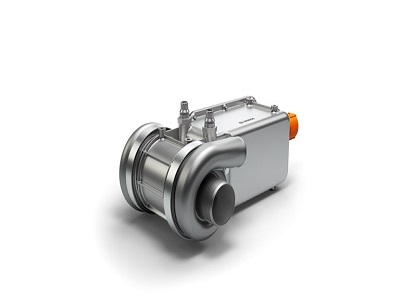
Advancements in medium and heavy-duty vehicle and focus on improving hydrogen infrastructure is expected to drive the demand of global automotive hydrogen gas injector market in the forecast period, 2023-2027.
According to TechSci Research report, “Automotive Hydrogen Gas Injector Market – Global Industry Size, Share, Trends, Opportunity, and Forecast, 2017-2027”, the global automotive hydrogen gas injector market is anticipated to grow at an impressive rate in the forecast period, 2023-2027. The development of automotive fuel cells lowered the cost of infrastructure and other resources. They consume either methane or hydrogen as the primary source of energy, and both of the fuel cells are cleaner sources of fuel compared to lithium-ion batteries. The majority of the world’s largest automobile manufacturers are making plans to commercialize fuel cell vehicles in the forecast period. Fuel cells are used as the primary power to generate backup power and heat in the automotive industry. The high adoption rate for fuel cell technology and several steps taken by government authorities are expected to accelerate the global automotive hydrogen gas injector market growth.
However, the lack of presence of hydrogen fueling stations and high initial investments may restrain the growth of the global automotive hydrogen gas injector market in the forecast period.
Browse over XX market data Figures spread through 110 Pages and an in-depth TOC on “ Global Automotive Hydrogen Gas Injector Market”
https://www.techsciresearch.com/report/automotive-hydrogen-gas-injector-market/8247.html
The global automotive hydrogen gas injector market is segmented by vehicle type, demand category, flow rate, competitional landscape, and regional distribution.
Based on the vehicle type, the global automotive hydrogen gas injector market is divided into passenger car, LCV and M&HCV. The passenger car segment is expected to hold the largest market share in the forecast period. Improving economic conditions and the growing expenditure capacity of consumers fuel the sales of passenger cars around the globe. High demand for personal mobility and numerous emission policies by the government of several countries favor the sales of the passenger car segment.
Based on the demand category, the global automotive hydrogen gas injector market is bifurcated into OEM and replacement. The OEM segment is expected to account for a significant market share in the forecast period. OEMs are using advanced technologies in the manufacturing process of hydrogen gas injectors to integrate advanced features and increase the efficiency of their product. Market players are coming together to develop fuel cell technologies and find new materials to manufacture advanced hydrogen gas injectors. They are making investments to expand their facilities and introducing novel technologies to stay ahead in the market.
Based on the regional analysis, the Asia-pacific region is dominating the market and is expected to maintain its dominance throughout the forecast period. The increasing preference of consumers for private vehicle ownership and strong government support is fueling the sales of passenger cars in the region. South Korea, China, and Japan are the leading economies in electric vehicles. China boasts of one of the world’s largest electric vehicle producers due to government support and the implementation of compulsory laws that emphasize that vehicle manufacturer needs to manufacture electric vehicles per the number of vehicles manufactured. Installation of the electric vehicle charging stations and setting-up deadlines to shift from ICE vehicles to full or hybrid electric vehicles is expected to influence the market growth in the next five years.
Major market players operating in global automotive hydrogen gas injector market are:
- Robert Bosh GmbH
- Clean Air Power Ltd.
- HyTech Power, LLC.
- Cummins Inc.
- Aisin Industries Co. Ltd.
Download Sample Report @ https://www.techsciresearch.com/sample-report.aspx?cid=8247
Customers can also request for 10% free customization on this report.
“Growing commercial activities around the globe, owing to the improvement in the economic status and ongoing trade activities, is expected to bolster the demand for commercial vehicles. The shift in focus of concerned authorities to develop green mobility solutions to lower transportation pollution and the growing awareness about the benefits of using hydrogen fuel cells is boosting the demand for hydrogen gas injectors worldwide. The use of fuel cell in commercial vehicles and the launch of vehicles supporting fuel cell technology is expected to propel the growth of the global automotive hydrogen gas injector market till 2027” said Mr. Karan Chechi, Research Director with TechSci Research, a research based global management consulting firm.
“Automotive Hydrogen Gas Injector Market – Global Industry Size, Share, Trends, Opportunity and Forecast, 2017-2027, Segmented By Vehicle Type (Passenger Car, LCV, M&HCV), By Demand Category (OEM vs Replacement), By Flow Rate (Upto 2gallon/sec and Above 2gallon/sec), and By Region”, has evaluated the future growth potential of global automotive hydrogen gas injector and provides statistics & information on market size, structure, and future market growth. The report intends to provide cutting-edge market intelligence and help decision makers take sound investment decisions. Besides, the report also identifies and analyzes the emerging trends along with essential drivers, challenges, and opportunities in global automotive hydrogen gas injector market.
Contact
Mr. Ken Mathews
708 Third Avenue,
Manhattan, NY,
New York – 10017
Tel: +1-646-360-1656
Email: [email protected]
